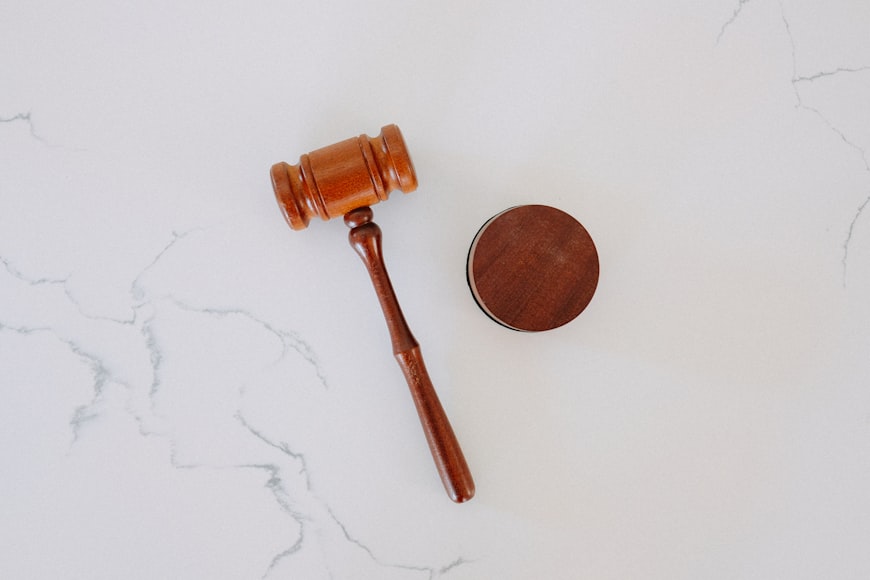||
|----|
|
[unsplash](https://unsplash.com/photos/silver-and-black-round-emblem-NHRM1u4GD_A)|
|-------|
Hi friends, good to see you again after a while. Welcome to my blog, trust me I've missed been here and I've equally missed you. I was away for a reason beyond me but thank God am back to continue from where I left off.
As usual we have something interesting to discuss just as you can see from the title of this post. I believe it's a subject most of us might be interested in. Anyways let's get into it without mincing words.
|**Introduction**|
|---------|
Cryptocurrency have been for a while now, counting a number of year already but then it can't be compared to the number of years that fiat or our local currency have spent. People have come to the conclusion that the success so far in the use of our local currencies as means of payment and settlement is tied to how the government have regulated it use.
This is not the sole reason for it success but then it contributes largely to it. Regulation is not just some unfavourable restrictions, it actually a means of protecting the operation around these currencies and also safeguard users from being victims of money related crimes and challenges.
Some people have been clamouring the same for crypto as the space seem to be "lawless" and higly risky because of inadequate regulation on it activities. Although countries around the world have been playing their role in ensuring regulation for this digital currency, however it proves a bit difficult because of the decentralized nature of this digital currency called cryptocurrency.
|**What is Regulation for Cryptocurrency**|
|--------|
Regulation for Cryptocurrency can be defined as the laid down procedures, laws and frameworks that is used to structure and shape the activities of digital asset. These laws are not enacted to stop the activities, they are just some measures from the government to check the activities of these digital asset and their contribution to investors protection and blockchain development.
Regulation works in such a way that it checks how these digital currencies are created, how they are bought and sold or even traded in an open market. They regulation also seeks for how digital asset can co-exist and synchronize with existing financial models.
||
|--------|
|[unsplash](https://unsplash.com/photos/brown-wooden-smoking-pipe-on-white-surface-6sl88x150Xs)|
|--------|
I believe one of the reason why most government of the world seem not to support cryptocurrency is because they feel it's a threat to their existing financial system and then do all they have in their power to discourage it by setting up some very hard and fast rules about it.
However we have countries around the world that have embraced the use of this digital currency called crypto, some others are gradually embracing as well.
Regulation might sound like some hard laws to discourage the growth of cryptocurrency but then it not really the case. Government would always do all in it power to protect the interest of her citizen. Interestingly, people seem to believe so much in the authenticity of a movement or program when they know that their government is involved .
I think I won't be wrong to say that cryptocurrency will see massive adoption in years to come when government of the nation embrace it with open arms via fair and considerable regulation.
|**Crypto Regulation around the world**|
|-----------|
In this section we would be exploring how crypto is being regulated around the world as we would be using some countries as case study.
||
|--------|
|[unsplash](https://unsplash.com/photos/turned-on-monitoring-screen-qwtCeJ5cLYs)|
|--------|
• **USA :** The regulatory modality for Cryptocurrency in the U.S seem to vary and also evolves constantly. They have several financial agencies that give their law concerning this digital asset in line with the way they perceive it. U.S law maker could also weigh in and come up with their rules.
For example, The Security and Exchange commission (SEC) view cryptocurrency as securities and their major role as an agency is to ensure that investors are protected hence the reason why they come up with a law that all offerings that qualifies as Investment contract should be registered.
The Commodity Futures Trading Commission (CFTC) on the other hand view cryptocurrency as commodity just like oil, gold etc. They see crypto as a commodity that can support future contracts and for this reason they regulate it activities by creating laws that wars against unregistered Bitcoin future exchanges.
Internal Revenue Service (IRS) view crypto asset as property which make is subject to taxation. Their claim is that since it can be traded (bought/sold) then payment of tax should be applicable, capital gain tax to be precise and this has been in operation since 2014.
• **Canada:** In Canada, crypto trading platforms are subjected to registration with provincial agencies because they are classified as "money service businesses". This also make crypto subject to tax in that country since it's just like other commodity. In a bid to support the activities and growth of cryptocurrency, permission have also being granted for Cryptocurrency exchange-traded fund to operate on Toronto Stock Exchange.
• **United Kingdoms:** U.K also supports the use of crypto and of course regulates it via the Financial Conduct Authority and Advertising Standard Authority which sees to it that crypto companies and firms follow best practices, safeguard against every form of laundering activities and terrorism financing. The advertising standard authority also ensures that crypto advertisement are not blown beyond proportion.
• **Switzerland's:** Also have their regulatory structure. Their law maker in year 2020 passed a law guiding Distributed Ledger technologies (DLTs) into which crypto falls. This laws enables tokenization for rights, claims and financial instrument. In addition, every crypto holder, is to know he is subjected to wealth/income tax.
• **El Salvador :** this nation seem to have the best policy and regulation so far as it has shown how much of acceptance it has for digital currency. This is revealed in their law authorizing Bitcoin as legal tender, making Bitcoin accepted in their country, nationwide. Tax is even paid via Bitcoin in El Salvador and the fascinating thing is that foreigners are exempted from paying taxes on income from their Bitcoin.
|**Bottom Line**|
|----------|
I believe we now is understand what regulation is in crypto and the goal of regulation. It's not some form of restriction on the growth and expansion but a measure to protect the crypto sphere and boost investors confidence. Although there are downsides to this things but then the benefit seems to outweigh the downside. We should be looking at the benefit in my next post.
There you go friends.I would love to wrap it up at this juncture. I want to believe you've gotten so much from this piece. As my usual custom is, I would always encourage that you DYOR to be sure of every financial step you would want to take as I won't be liable for any form of loss encountered by you.
Feel free to share with me your thoughts in the comment section. Thanks for your time once again. Gracias!
-------------
**Disclaimer: This post is made as an education and not investment advice. Digital asset prices are subject to change. All forms of crypto investment have a high risk. I am not a financial advisor, before jumping to any conclusions in this matter please do your own research and consult a financial advisor.**
----------
Regards
@lhorgic♥️
-----------
Reference